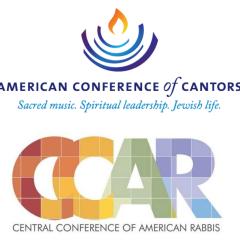
Joint Statement from ACC and CCAR on IRS Ruling Regarding Clergy Endorsements from the Pulpit
As you may have seen, the IRS has stated that congregational clergy may now endorse or oppose candidates or parties from the pulpit without negative impact on a congregation’s 501(c)3 status.
The CCAR has long affirmed our commitment to the Johnson Amendment, which protects America's cherished First Amendment rights and protections by prohibiting nonprofit entities such as houses of worship from supporting or opposing candidates for office.
This new ruling may seem like a helpful loosening of regulations. However, we urge you to refrain from endorsing or opposing candidates in an official congregational capacity—both to maintain the principle of church-state separation that has protected both government and religion and to avoid dividing the congregation and alienating those supporting different parties or candidates.
Please note that the new ruling does not impact existing Johnson Amendment restrictions on clergy who are employed by 501(c)3 organizations that are notcongregations. Clergy who work for non-congregational nonprofit organizations continue to risk their employers’ 501(c)3 by supporting or opposing candidates for office on behalf of the organization.
We are concerned that this change may result in undue pressure on rabbis and cantors to endorse or condemn candidates, dividing our congregations in the heat of political campaigns. Taking a position publicly will create unhealthy divisions in the community that will not redound to the benefit of the rabbi or cantor. We must continue to be rabbis and cantors to all whom we serve, regardless of political affiliation or alignment.
Some congregations may wish to adopt policies that prohibit clergy from endorsing or opposing a candidate for office in their official capacity. If crafted in partnership with the clergy, such policies may benefit the congregation and protect its rabbi(s) and cantor(s).
These coming High Holy Days will be a time to exercise restraint. However, there is no change to the legal right every clergy and congregation has to speak freely on the issues of the day, lifting our prophetic voices as people of faith have done throughout American history. Raising the voice of social justice—including endorsing or opposing policies, as they relate to Jewish values—continues to be our appropriate role. Endorsing or speaking against specific candidates is not.
We are grateful to our partners at the RAC for their statement about this new ruling.
Cantor Josh Breitzer, President, American Conference of Cantors
Rachel Roth, Chief Operating Officer,American Conference of Cantors
Rabbi David Lyon, President, Central Conference of American Rabbis
Rabbi Hara Person, Chief Executive, Central Conference of American Rabbis

